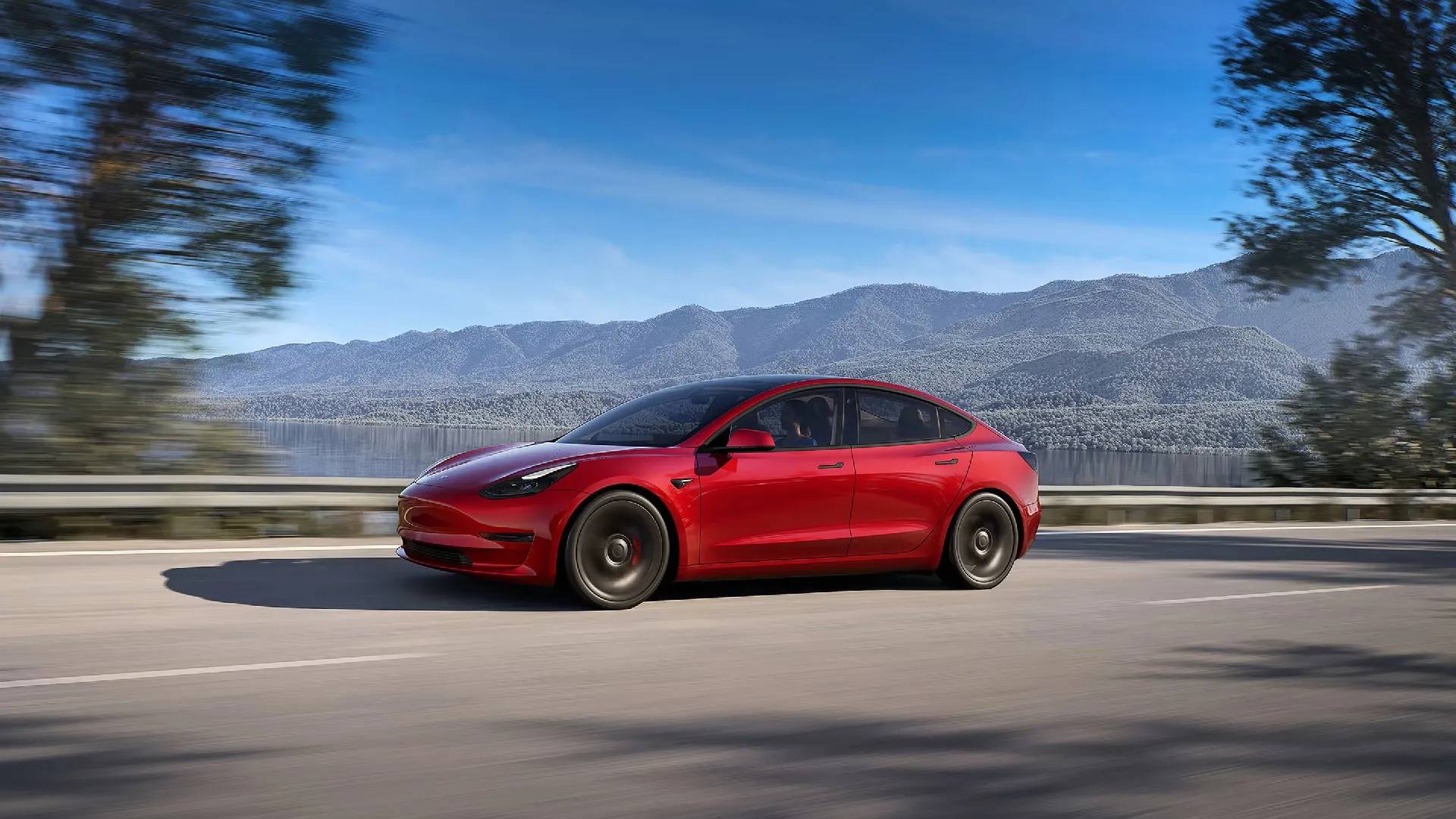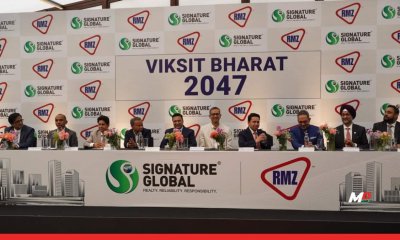Published
2 years agoon

Article by Neeraj Tiwari & Karan Karayi
India, the world’s second-most populous country, is now on the radar of electric vehicle (EV) giant Tesla. After years of speculation and anticipation, Tesla is finally making its move into the Indian market. The company is in talks with Reliance Industries (RIL), one of India’s largest conglomerates, for a possible joint venture to establish a manufacturing facility in the country. With a commitment of $2 billion, Tesla aims to capitalize on India’s growing demand for electric cars and position itself as a major player in the Indian automotive market.
Tesla’s Entry into India: A Natural Progression
Elon Musk, the visionary CEO of Tesla, has long expressed his interest in bringing Tesla’s electric vehicles to India. In a recent X Spaces session, Musk emphasized the importance of India as a market for electric cars, stating, “India is now the most populous country in the world, based on population. India should have electric cars just like every other country has electric cars. It’s a natural progression to provide Tesla electric vehicles in India.” With this statement, Musk confirmed Tesla’s entry into the Indian market, sparking excitement among Indian EV enthusiasts.
Earlier this month, Elon Musk reportedly dispatched a team to India to scout for suitable sites for a proposed $2 billion to $3 billion electric car plant, underscoring Tesla’s commitment to establishing a robust presence in the country. Additionally, Rajesh Kumar Singh, the secretary of the Department for Promotion of Industry and Internal Trade, stated in a Bloomberg interview that it is now incumbent upon Elon Musk to formally announce Tesla’s manufacturing plans in India.
In line with its expansion strategy, Tesla aims to ramp up purchases of auto components from India, with projections indicating potential purchases of up to USD 15 billion. This move not only underscores Tesla’s confidence in India’s manufacturing capabilities but also presents significant opportunities for the country’s automotive industry to thrive in the burgeoning electric vehicle segment.
Exploring Potential Locations for Tesla’s Manufacturing Facility
Tesla is currently evaluating various locations in India to establish its manufacturing facility. The states of Gujarat and Maharashtra have emerged as top contenders. Maharashtra, in particular, is likely to be the preferred location due to its suitability for port facilities, as Tesla aims to use the plant for both domestic and export purposes. The final decision on the location is expected to be made after senior officials from Tesla visit the country in the coming months.
The Role of Reliance Industries in Tesla’s Indian Venture
Reliance Industries, led by billionaire Mukesh Ambani, is in talks with Tesla for a potential joint venture to set up the EV manufacturing arm in India. While the specifics of Reliance’s role are still being defined, insiders suggest that the Indian conglomerate could play a pivotal role in establishing the manufacturing facility and supporting infrastructure for Tesla in India. This strategic collaboration could significantly accelerate Tesla’s entry into the Indian market, leveraging RIL’s extensive resources and expertise.
While the discussions with RIL are ongoing, the talks are not exclusive, leaving room for Tesla to explore other potential domestic partners. The collaboration with Reliance Industries, known for its expertise in various sectors including energy, telecommunications, and retail, could bring significant synergies and support Tesla’s ambitious plans in India.
India’s Electric Vehicle Policy: A Boon for Tesla
In a bid to position India as a global manufacturing hub for electric vehicles, the Indian government approved a new electric vehicles scheme in March. The policy offers several incentives and tax reliefs to attract EV manufacturers to set up operations in the country. As part of the policy, Tesla would need to meet specific requirements, including a minimum investment of Rs 4,150 crore ($500 million) and achieving 50% domestic value addition (DVA) within five years. The policy also sets caps on the number of EVs permitted for import based on the investment made.
The Impact of Tesla’s Entry on the Indian Automotive Market
Tesla’s entry into the Indian market could be a game-changer for the country’s automotive industry. The company’s cutting-edge technology, sleek design, and strong brand presence have the potential to disrupt the traditional automobile market in India. With its entry, Tesla aims to tap into the increasing demand for electric vehicles in India, driven by factors such as government incentives, rising environmental consciousness, and the need for sustainable transportation solutions.
Benefits for India: Job Creation and Economic Growth
Tesla’s investment in India would not only create job opportunities but also contribute to the country’s economic growth. The establishment of a manufacturing facility would require a significant workforce, including engineers, technicians, and production staff. Moreover, the localization of production would lead to the development of a robust supply chain ecosystem, benefiting local businesses and suppliers. The growth of the electric vehicle industry in India would also have a positive impact on the environment, reducing carbon emissions and pollution.
Accelerating the Adoption of Electric Vehicles in India
Tesla’s entry into India could act as a catalyst for the widespread adoption of electric vehicles in the country. The company’s strong brand image and reputation for innovation could help overcome common barriers to EV adoption, such as range anxiety and high upfront costs. Tesla’s presence in the Indian market would also encourage other
automakers to invest in EV manufacturing, leading to increased competition and further driving down prices. As a result, more Indian consumers would be inclined to make the switch to electric vehicles, contributing to a greener and more sustainable future.
In Conclusion
Tesla’s plans to set up an EV manufacturing arm in India in collaboration with Reliance Industries mark a significant milestone in the country’s transition towards electric mobility. With its advanced technology and commitment to sustainability, Tesla has the potential to revolutionize the Indian automotive market. The entry of Tesla and other global EV players would not only boost the adoption of electric vehicles but also create employment opportunities, stimulate economic growth, and contribute to a cleaner environment. As India strives to become a global leader in electric mobility, Tesla’s partnership with Reliance Industries could be a game-changer that


Nissanka’s brutal century pushes Australia to brink of elimination


Ola Electric’s ‘Structural Reset’: Revenue Plunges as Aggarwal Pivots to Profitability


TechnoSport Partners Ravichandran Ashwin to Spotlight Cricket’s ‘Game Changers of the Decade’ as T20 World Cup Fever Grips Fans


Healthy Master Appoints Cricketer Harshit Rana as Brand Ambassador, Championing Mindful Snacking and Resilience


Signature Global Enters Large-Scale Commercial Development; RMZ to Acquire 50% Stake in Subsidiary for INR 1,283 Crore Gurugram Project


Marks & Spencer: A Legacy Brand in a Modern World

